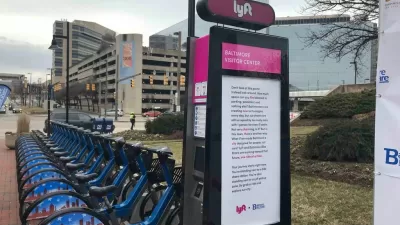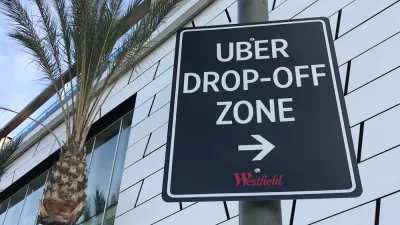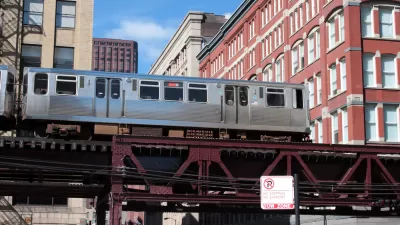Driving an electric ride-hailing vehicle may be good for the planet but costly for the driver who may have to limit the distance of rides and search for fast-chargers. Uber is trying to help out.

"It’s hard to drive an electric vehicle for Uber today,” said Adam Gromis, Uber global head of sustainability.
Carolyn Said for the San Francisco Chronicle on June 19. Strategies include financial incentives and technological perks to inform drivers in eight cities when to turn down rides due to trip length.
In California, transitioning to zero-emission ride-hailing vehicles may not be a voluntary matter if legislation by Sen. Nancy Skinner (D-Berkeley) becomes law.
SB 1014 requires the California Public Utilities Commission [CPUC], in regulating transportation network companies [TNCs], to establish “clean mile” targets. By 2023, at least 20 percent of miles traveled by ride-hail company cars must be zero emission, and 50 percent by 2026. By 2030, all ride-hail vehicles must be zero-emission vehicle or ZEV.
Is there a need for the CPUC to initiate regulatory changes by exercising its jurisdiction over TNCs in order to reduce greenhouse gas (GHG) emissions through increased use of electric vehicles (EVs)...? If so, what types of regulatory tools might the CPUC consider?
Lyft opposes the legislation, "saying that it would hurt lower-income drivers who can’t afford the pricey electric models. Uber is neutral on the bill," adds Said.
Uber hopes to do more to boost electric-vehicle drivers by engaging in advocacy through membership in Veloz.org, a new California nonprofit seeking to accelerate the shift toward electric cars. Both Gromis and Lyft’s Sam Arons are on its board, along with people from utilities, car companies and nonprofits such as the NextGen Policy Center and the Sierra Club.
FULL STORY: Uber’s new plan to woo drivers: It’s electric

Alabama: Trump Terminates Settlements for Black Communities Harmed By Raw Sewage
Trump deemed the landmark civil rights agreement “illegal DEI and environmental justice policy.”

Study: Maui’s Plan to Convert Vacation Rentals to Long-Term Housing Could Cause Nearly $1 Billion Economic Loss
The plan would reduce visitor accommodation by 25% resulting in 1,900 jobs lost.

Planetizen Federal Action Tracker
A weekly monitor of how Trump’s orders and actions are impacting planners and planning in America.

Wind Energy on the Rise Despite Federal Policy Reversal
The Trump administration is revoking federal support for renewable energy, but demand for new projects continues unabated.

Passengers Flock to Caltrain After Electrification
The new electric trains are running faster and more reliably, leading to strong ridership growth on the Bay Area rail system.

Texas Churches Rally Behind ‘Yes in God’s Back Yard’ Legislation
Religious leaders want the state to reduce zoning regulations to streamline leasing church-owned land to housing developers.
Urban Design for Planners 1: Software Tools
This six-course series explores essential urban design concepts using open source software and equips planners with the tools they need to participate fully in the urban design process.
Planning for Universal Design
Learn the tools for implementing Universal Design in planning regulations.
Caltrans
Smith Gee Studio
Institute for Housing and Urban Development Studies (IHS)
City of Grandview
Harvard GSD Executive Education
Toledo-Lucas County Plan Commissions
Salt Lake City
NYU Wagner Graduate School of Public Service





























